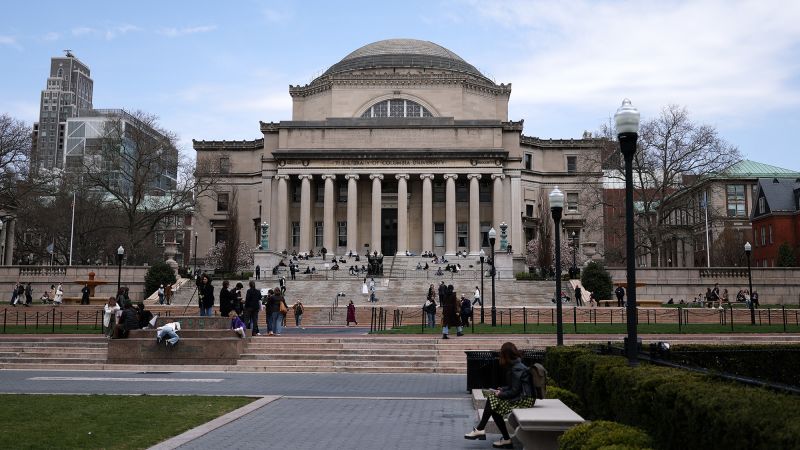Columbia University made headlines on Wednesday by announcing a significant agreement with the Trump administration, aimed at resolving various federal investigations regarding alleged breaches of anti-discrimination laws. This resolution follows extensive negotiations described as a pursuit to restore crucial federal funding that had previously been at risk. Central to the settlement is a financial commitment from Columbia, which consists of paying a total of $221 million over a three-year period. While the university did not explicitly admit to any wrongdoing, the financial terms reflect a serious approach to conflict resolution.
The agreement involves a structured settlement whereby Columbia will pay $200 million as part of a negotiated deal, along with an additional $21 million to address inquiries conducted by the U.S. Equal Employment Opportunity Commission. In exchange for this settlement, Columbia has stated that a considerable portion of the federal grants—previously terminated or paused in March 2025—will be reinstated. This reinstatement is essential as it restores the institution’s access to billions in current and future federal grants, vital for the functioning and research initiatives at the university.
Furthermore, this settlement encompasses policy changes introduced by Columbia earlier in the year. These changes were prompted by the revocation of $400 million in federal funding linked to protests on campus. Under the new agreement, Columbia has implemented restrictions on demonstrations, established revised disciplinary procedures, and committed to conducting a thorough review of its Middle East curriculum. This proactive stance indicates a readiness to address concerns about campus safety and inclusivity for all students, particularly Jewish students and faculty members who have voiced concerns over antisemitic incidents.
Emphasizing the university’s acknowledgment of the situation, Columbia admitted that Jewish students and staff have encountered distressing incidents on campus that require reform. The institution’s leadership has reiterated this commitment to enhancement while maintaining that they do not accept liability in this resolution.
The Trump administration views this settlement as a potential prototype for other universities facing similar scrutiny. It reflects a broader push by the administration to hold elite institutions accountable for their stance on antisemitism and other related issues. Universities such as Harvard and Columbia have been under intense pressure to amend their policies to prevent the occurrence of any form of discrimination, or risk significant consequences such as the loss of federal funds. This situation raises crucial questions regarding academic freedom and how federal influence can shape campus dynamics.
CNN reported that the momentum toward an agreement had built up over several months, with Columbia’s board convening in July to assess the terms of the deal. Unlike Harvard, which has adopted a more confrontational approach, Columbia has navigated negotiations with a more conciliatory tone—resulting in more favorable responses from the administration during discussions. As previously reported, the Trump administration had threatened to withdraw Columbia’s accreditation due to allegations regarding the mishandling of antisemitic incidents on campus.
Amidst ongoing negotiations, President Trump highlighted the likelihood of settlement with both Columbia and Harvard. His comments about the financial implications underscore the seriousness of the situation that universities face, reflecting the tough stance the administration has taken. Financial pressures are substantial, with many universities recognizing that they cannot afford to be left behind or face the risk of losing critical funding.
Claire Shipman, Columbia’s acting president, voiced the acute financial pressures the university faces, emphasizing that ongoing struggles could potentially devastate its research capabilities. She articulated concerns regarding the unsettling state of federal funding, suggesting that restoring collaborative ties with the government is paramount for preserving academic excellence.
In an ongoing journey toward reform and accountability, Columbia has engaged in dialogues regarding the rise in antisemitic incidents on its campus. Shipman underscored their commitment to ongoing progress— pledging that while steps have been taken, there remains work to be done.
As this story continues to evolve, Columbia’s path forward indicates a cautious approach laden with the complexities of funding, governance, and the need for substantive policy reform on campus.











